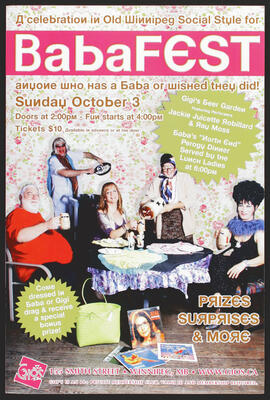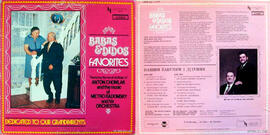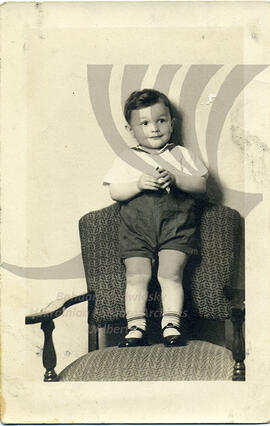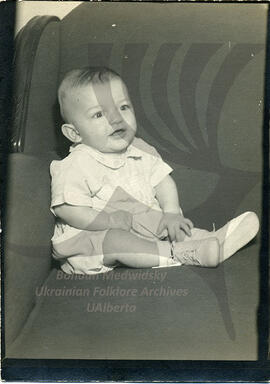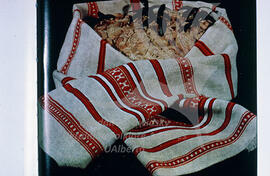This item is a recording of a conference presentation. Shevchenko as a national poet of Ukraine. Major developments that might take place in the next few decades: long term climatic conditions, changes in climate are less predictable; the capacity for food production will be not as good but the population will be expending sharply – tremendous pressure for food, massive famines. Restructuring of political power is coming. Atomic weaponry is a threat. Expansion of education will result in diffusion of power of political decision making. Physical limits of human activity. Redistribution and optimization of natural resources. Economic shocks for the US: Japan’s economic growth, Vietnam war, Chinese experience. Product life cycle. The USA will not be able to impose their will on other nations. In Europe, new political construction will take place. There will be a power bigger than a nation-state. European countries have similar stages of development and are ready for globalization. Every nation will retain its national heritage but they will unite on a global political level. China’s influence will grow in the decades to come. It will be less dependent on other countries. Unlike the Soviet Union, China retained more equality. American model is not appropriate to countries that have no natural wealth. Japanese had high motivation and an obsession for learning technology while preserving own traditions. They have capacity for national cooperation in the face of a threat. Japanese will be performing another miracle – just watch them. They will be a model for European countries. Soviet Union has tremendous range of natural resources. Its potential productivity is very high. Marks’ proposition was true for limited resources. Communist society is supposed to be highly cooperative in the absence of material scarcity. But USSR is the last empire and it is disintegrating quite quickly. What is awaiting for the USSR? It can become a supplier for more developed countries. Atomic war is also a probability but it could happen only accidentally; possibly a conventional war with China. It does not pay to keep an empire. Now much energy is being wasted on keeping that empire alive instead of developing. Ukraine in this context is a modern nation; it has generous natural resources. It has a necessary infrastructure for an efficient country.
Poster advertising for Babafest at Gio's which is a private membership club in Winnipeg. Event to take place on October 3. Year not listed.
"Baba's Church; My Church" describes the history of the establishment of two Ukrainian Catholic churches across the street from each other in Winnipeg.
Fingarsen, FrankBorn on November 18, 1901 in Bukovyna. Orthodox Christian. Was conscripted in a Romanian army. There were 6 children in the family. His sister was in Canada (in Regina) by the time he returned from the army, and he joined her in 1930. He was a member of the Strilets’ka Hromada (Ukrainian War Veteran Association). Interviewer asks about people from a photo in a book (Kozak, Veselovsky, Kuzyk, Babej, Abramovych, Kukhar, Semiuk, Symotiuk). Orahnizatsia Ukrains’kykh samostiinykiv and its relation to the Strilets’ka Hromada. Het’mantsi and Strilets’ka Hromada. Strilets’ka Hromada owned a Hall. A rift between Bukovynians and Halychynians; Orthodox vs. Greek-Catholics. Samostiinyky used to have a nice Hall and small church.
His wife came to Canada in 1922. Her brothers came to Canada first and brought her over (sending an affidavit). She was born in Bukovyna; Orthodox faith. Worked on a farm.
Was born on ?????? (cannot hear) 14 , 1901 in a village of Peremeliv of the Huchatyns’kyi povit. He is a Greek-Catholic. Had 2 older sisters. After serving in Polish army, came to Canada in 1927. During WWI was fighting in the Halyts’ka Ukrains’ka armiia. Had 4 grades of education (in a village school). He was almost 17 when he was forced to go to the Ukrainian army. Was fighting in Zolochiv, Babyna Hora, Pidhaichyky in 1918. Ran away home from the front. The Poles came and occupied them. He was forced to join the Polish army. He was then near Warsaw in 1922. There was, though, no discrimination against Ukranians in Polish army. He chose to go to Canada because the family had no means to survive. There was his extended family in Canada (left in 1899). He loaned money for the trip from wealthier villagers and had to pay back 70% interest. He made sure not to work on a farm but for a company (only during the Depression he would work on farms). On May 8, 1927 he already came to Edmonton. They did not let them get off in Winnipeg but made them go to Edmonton for an additional price of $7. Was lucky to get a job in a forest. Then work on harvesting. went to Lamont and got a job on a farm of an Englishman; then on a border between Alberta & Saskatchewan. Then worked in Genek (???). Then went to Winnipeg in the fall of 1928. During the Depression he belonged to the Ukrainian organization “KROV” (???)
When was forced to join the Ukrainian Army in 1918 he was charged with desertion, and got 25 beatings.
During the Depression he had multiple little jobs that paid little. He married a Ukrainian woman in 1937.
A review of the book "Balady; Kohannia ta doshliubni vzaiemynyby" by O.I Dei, A.Iu. Yasenchuk and Ivanytskii, edited by M.M. Paziak. Kiev, Naukova Dumka, 1987
Moroz, Valentyn